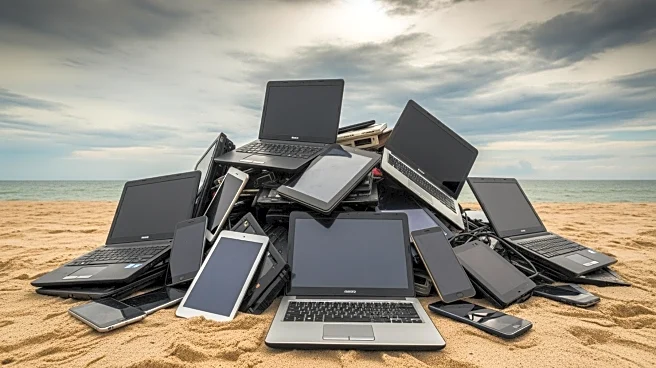What's Happening?
A report by the Basel Action Network reveals that millions of tons of U.S. electronic waste are being exported to Southeast Asia, creating environmental and health challenges. The e-waste includes discarded
devices containing toxic metals, which are often processed under harmful conditions. The report identifies several U.S. companies involved in exporting e-waste, raising questions about the industry's practices and the effectiveness of environmental certifications.
Why It's Important?
The export of e-waste to developing countries poses significant environmental and health risks, as these nations may lack the infrastructure to safely manage hazardous materials. The situation highlights the need for stricter regulations and accountability in the e-waste recycling industry. It also underscores the global impact of consumer electronics and the importance of sustainable waste management practices.
Beyond the Headlines
The report suggests that the trade of e-waste may be evading regulation through misclassification, contributing to 'waste colonialism' where developing nations bear the burden of pollution from wealthier countries. This raises ethical concerns about the responsibility of developed nations to manage their waste and support sustainable practices globally.












